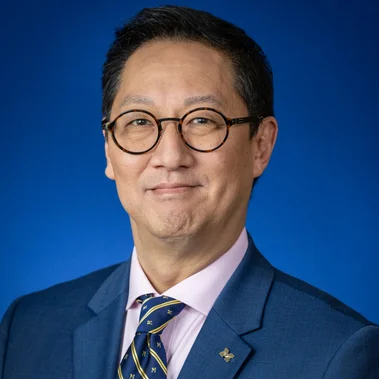Santa J. Ono, President, University of Michigan - Ann Arbor | University of Michigan - Ann Arbor
Santa J. Ono, President, University of Michigan - Ann Arbor | University of Michigan - Ann Arbor
Michigan is in the running for a $50 million center dedicated to developing quantum technology for practical applications. The Michigan-led team, supported by a $1 million grant, is among 11 groups funded in the initial phase of the National Science Foundation’s Quantum Science and Technology Demonstrations.
The project, known as Quantum Photonic Integration and Deployment (QuPID), aims to create chips that utilize light's precision for real-world measurements using quantum semiconductors. The researchers will collaborate with industrial partners to develop high-accuracy quantum systems.
“We’re essentially trying to build quantum gadgets and demonstrate their performance so that people can integrate them into their own devices, whether that’s AI, measuring the purity of a liquid, or predicting major storms months in advance,” said Mackillo Kira, U-M professor of electrical and computer engineering and principal investigator of the project.
The team focuses on applications such as environmental monitoring, GPS-free navigation, semiconductor chip quality control, and geological mapping from satellites or aircraft.
“Transforming the quantum advantage demonstrated in labs to serve wide applications in the real world comes down to simplifying and packaging the instrumentation needed to manipulate and measure light properties,” stated Parag Deotare, U-M associate professor of electrical and computer engineering and deputy director of the project.
The center will explore robust quantum systems adaptable for various applications. Design kits will be developed for global use by researchers and industries.
In this competitive program's first phase, new applications and materials will be explored. Previous breakthroughs include detecting radio signals via quantum sensing, discovering particle-like elements within quantum materials using quantum light, switching information at speeds faster than traditional computers, and introducing ferroelectric nitrides—a promising material for all-in-one quantum integration solutions.
“No other material shows such promise as an all-in-one quantum-integration solution,” noted Zetian Mi, U-M professor of electrical engineering and computer science and co-principal investigator.
Ferroelectric nitrides could produce entangled light, maintain internal states, convert light across wavelengths without losses—all within one chip. These materials are compatible with silicon-based microelectronics.
A potential center role includes recruiting future talent. Collaborations are planned with outreach facilities at U-M along with commitments from Ann Arbor Hands-On Museum and St. Clair County Community College.
Principal investigators cover theory (Kira), materials research (Mi), device integration (Deotare), photonic devices (Jelena Vučković from Stanford), and sensing expertise (Zheshen Zhang from U-M).
QuPID involves researchers from Ohio State University, Harvard University, Michigan State University, University of Arizona, University of Southern California; industry partners include Honeywell, MONSTR Sense Technologies, TOPTICA Photonics, INTEL; international collaborators come from Germany's University of Regensburg and Canada's Polytechnique Montréal.
By year-end, a proposal detailing promising applications will be submitted. If successful, an additional $4 million over two years may be awarded to demonstrate lab technology—eight out of ten teams are expected to receive funding. Subsequently, six teams may receive up to $50 million over five years for building real-world-ready devices under NSF support through the National Quantum Initiative Act.
The Lurie Nanofabrication Facility and Michigan Center for Materials Characterization will aid in producing quantum materials alongside individual faculty labs.
Kira and Deotare also hold physics appointments at U-M.






 Alerts Sign-up
Alerts Sign-up